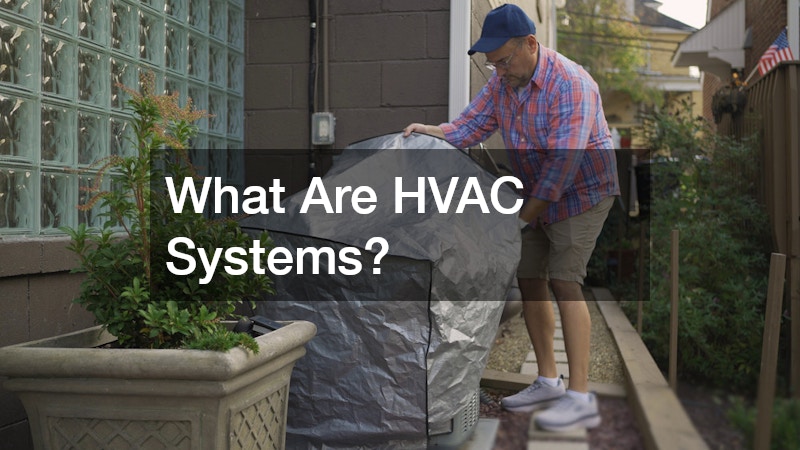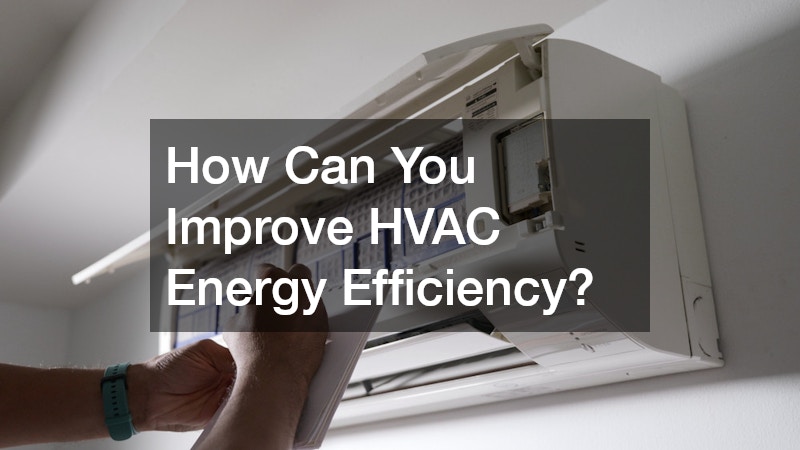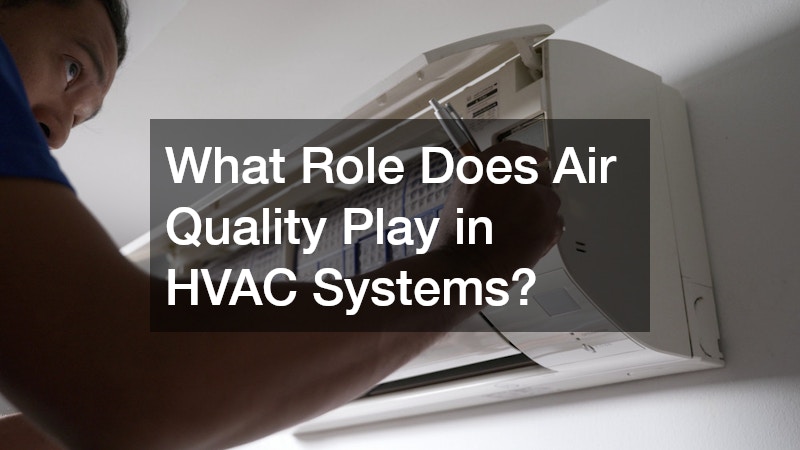For any homeowner, understanding HVAC systems is key to maintaining comfort throughout the year. HVAC, which stands for Heating, Ventilation, and Air Conditioning, plays a crucial role in regulating the indoor temperature and air quality of your home. Whether you’re braving a hot summer or a chilly winter, a well-functioning HVAC system keeps your living environment comfortable and energy-efficient.
Maintaining HVAC systems isn’t just about comfort — it also impacts your utility bills and the longevity of your equipment. Many homeowners overlook routine upkeep, which can lead to costly air conditioning repair or premature system failure. This guide is designed to help you navigate the essentials of HVAC systems, including how they work, choosing the right system, common problems, maintenance schedules, and the benefits of professional HVAC services.
What Are HVAC Systems?

Definition and Components
HVAC stands for heating, ventilation, and air conditioning, which together create a system designed to regulate temperature and air quality inside a home or building. The primary components of most HVAC systems include a furnace or heat pump for heating, an air conditioner for cooling, ducts for air distribution, and ventilation elements for fresh air intake and exhaust.
Different Types of HVAC Systems
There are several types of HVAC systems commonly used in homes:
-
Split Systems: The most common type, with separate indoor and outdoor units.
-
Packaged Systems: All components are housed in one outdoor unit, ideal for homes without indoor space.
-
Ductless Mini-Splits: Provide zoned heating and cooling without ductwork, great for additions or older homes.
-
Heat Pumps: Efficient systems that provide both heating and cooling using refrigerant cycles.
Comparison of HVAC System Efficiency
The efficiency of HVAC systems varies by type and model. Modern heat pumps and high-efficiency air conditioning units consume less energy, reducing utility bills. When considering HVAC replacement or new ac installation, look for units with high SEER (Seasonal Energy Efficiency Ratio) ratings and ENERGY STAR certification for optimal performance and savings.
How Do HVAC Systems Work?
Basic Principles of Heating and Cooling
HVAC systems operate on the principle of heat transfer. Heating systems generate warmth by burning fuel or using electricity, while air conditioners remove heat from indoor air to cool the space. This cycle relies on the physical movement of heat energy, either by combustion, electricity, or refrigerants.
The Role of Refrigerants
Refrigerants are chemicals that absorb and release heat as they cycle through the HVAC system. In air conditioning and heat pump units, refrigerants evaporate to absorb heat from inside the home and then condense outside, releasing the heat into the environment.
Understanding Airflow and Circulation
Proper airflow is essential to HVAC efficiency. Ducts carry heated or cooled air throughout the house, while ventilation systems bring in fresh air and remove stale air. Regular air duct cleaning is necessary to maintain airflow and prevent dust and allergens from circulating indoors.
How To Choose the Right HVAC System for Your Home?
Assessing Your Home’s Needs
Choosing the right HVAC system starts with evaluating your home’s size, layout, and insulation. Larger homes or those with multiple floors often require more powerful systems or zoned HVAC solutions for even temperature distribution.
Energy Efficiency Considerations
Energy efficiency not only reduces your environmental footprint but also lowers monthly energy bills. Look for HVAC units with high efficiency ratings, and consider upgrades such as programmable thermostats and better insulation to maximize savings.
Budgeting and Financing Options
HVAC systems can be a significant investment. While upfront costs vary widely depending on system type and installation complexity, many manufacturers and contractors offer financing plans. Comparing quotes from multiple ac contractors will help you find the best value without sacrificing quality.
What Are the Common HVAC Problems and How To Fix Them?

Identifying Common Issues
Some of the most frequent HVAC problems include:
-
Inconsistent heating or cooling
-
Poor airflow or weak air pressure
-
Strange noises or odors
-
Frequent cycling on and off
-
Increased energy bills without a change in usage
Troubleshooting Simple Problems
Many issues can be addressed with basic troubleshooting:
-
Replacing dirty air filters
-
Resetting circuit breakers or thermostat settings
-
Clearing blocked vents or registers
-
Cleaning condenser coils
When to Call a Professional
If simple fixes don’t solve the problem or you notice leaking refrigerant, burning smells, or system breakdowns, it’s time to call ac repair companies. Professional HVAC technicians have the expertise to diagnose and repair complex issues safely.
How Often Should You Service Your HVAC System?
Recommended Maintenance Schedule
Experts recommend servicing your HVAC system at least twice a year—once in the spring before the cooling season and once in the fall before heating season begins. This includes thorough inspections, cleaning, and minor air conditioning repairs to prevent major breakdowns.
Signs Your System Needs Service
Look out for:
-
Reduced airflow
-
Strange noises or vibrations
-
Unusual odors
-
Rising energy bills
-
Uneven heating or cooling
DIY Maintenance Tips
Homeowners can also help maintain their HVAC systems by:
-
Changing air filters every 1-3 months
-
Keeping outdoor units free of debris
-
Checking and clearing drains
-
Scheduling regular air duct cleaning
What Is the Cost of HV AC Maintenance?
Average Costs of Professional Services
Routine HVAC maintenance typically costs between $100 and $300 per visit, depending on system complexity and location. This may include filter changes, system inspection, cleaning coils, and testing electrical connections. Prices can vary based on geographic region and the specific services included in the maintenance package. For instance, a more comprehensive service that includes air duct cleaning or refrigerant checks may cost more. While this might seem like an upfront expense, professional maintenance can prevent more costly repairs down the line. Additionally, many HVAC companies offer service contracts or annual plans that bundle multiple visits at a discounted rate, which can be a smart investment for homeowners wanting consistent upkeep.
Cost-effective DIY Techniques
Simple maintenance like replacing filters and clearing debris around outdoor units can save money and extend system life. Changing air filters regularly, for example, improves airflow and efficiency, which reduces wear on your HVAC system. Cleaning the outdoor condenser unit by removing leaves or dirt buildup also helps the system operate smoothly. However, it’s important to understand your limits—avoid DIY attempts involving refrigerant handling, electrical wiring, or complex mechanical repairs, as these can be dangerous and may void warranties. If unsure, calling a licensed ac contractor ensures safe and effective maintenance without risking further damage.
Long-term Financial Benefits of Regular Maintenance
Regular ac maintenance can improve efficiency, reduce the frequency of costly air conditioning repair, and extend the life of your system. Over time, these benefits significantly outweigh the cost of annual service. Well-maintained HVAC systems consume less energy, which translates directly to lower utility bills. Additionally, scheduling timely repairs can prevent minor issues from escalating into major malfunctions that require expensive replacements. From a financial standpoint, investing in routine upkeep is one of the most cost-effective ways to protect your HVAC investment. This proactive approach not only saves money but also helps maintain consistent comfort and indoor air quality in your home.
How Can You Improve HVAC Energy Efficiency?

Upgrading to Energy-efficient Models
If your system is over 10–15 years old, consider upgrading to a newer, energy-efficient HVAC unit. Modern models use advanced technology to provide better comfort with less energy. Newer air conditioning systems often have higher SEER ratings and incorporate variable-speed compressors and fans, which adjust operation based on your home’s needs rather than running at full power constantly. Heat pumps, for example, have become more efficient for both heating and cooling, making them an excellent choice for energy-conscious homeowners. Investing in a high-efficiency HVAC system can significantly reduce your monthly energy bills and your carbon footprint.
Sealing and Insulating Your Home
Proper insulation and sealing air leaks around windows, doors, and ducts prevent energy loss. This reduces HVAC workload and keeps your home more comfortable. Many homes have hidden leaks that cause conditioned air to escape or unconditioned air to enter, forcing your HVAC system to work harder to maintain temperature. Adding weather stripping, caulking gaps, and upgrading attic insulation are relatively inexpensive ways to improve energy efficiency. Don’t overlook the importance of sealing and insulating your ductwork as well—leaky ducts can reduce system efficiency by up to 20%, which is both costly and wasteful.
Smart Thermostats and Automation
Smart thermostats learn your schedule and adjust settings for optimal comfort and savings. Many models allow remote control via smartphone apps, making HVAC management more convenient. Some smart thermostats can detect when the home is empty and adjust temperatures automatically to save energy. Others integrate with voice assistants and home automation systems, giving you full control from anywhere. The convenience of automation also helps avoid the common homeowner mistake of forgetting to adjust the thermostat, ensuring your HVAC system runs efficiently without sacrificing comfort.
What Are the Latest HVAC Technologies?
Introduction to Smart HVAC Systems
Smart HVAC integrates sensors and connected devices to monitor and adjust system performance automatically. This can improve energy efficiency, reduce wear and tear, and enhance comfort. These systems often include features like adaptive learning algorithms that optimize heating and cooling based on your lifestyle patterns. For example, smart sensors can detect which rooms are occupied and direct airflow accordingly, saving energy by not conditioning empty spaces. Some smart HVAC systems even provide detailed diagnostics and maintenance alerts, allowing homeowners to address issues proactively before they become costly repairs.
The Impact of IoT on HVAC
The Internet of Things (IoT) allows HVAC components to communicate with each other and homeowners. For example, your system can alert you to needed maintenance or adjust settings based on weather forecasts. IoT-enabled HVAC can integrate with other smart home devices such as air purifiers, blinds, or lighting to create an energy-efficient ecosystem. This level of connectivity allows for real-time monitoring and remote control, making HVAC management easier than ever. As IoT technology evolves, expect more personalized and efficient heating and air conditioning solutions that adapt dynamically to your needs.
Emerging Eco-friendly Technologies
New refrigerants with lower environmental impact and systems powered by renewable energy are becoming mainstream. Traditional refrigerants have high global warming potential (GWP), but newer options like hydrofluoroolefins (HFOs) are much safer for the environment. Additionally, solar-powered HVAC systems and geothermal heat pumps offer sustainable alternatives that reduce reliance on fossil fuels. These eco-friendly technologies not only help homeowners reduce their carbon footprint but can also qualify for government rebates and tax incentives, making green upgrades more affordable and accessible.
What Are the Benefits of Professional HVAC Installation?
Ensuring Proper System Sizing and Setup
Proper sizing and installation by a licensed ac contractor ensure your HVAC system operates efficiently. An incorrectly sized system wastes energy and may cause frequent breakdowns. Oversized units cycle on and off too frequently, which can wear out components prematurely and fail to dehumidify properly. Undersized units struggle to maintain desired temperatures, leading to higher energy consumption and discomfort. Professional installers use load calculations that consider your home’s size, insulation, windows, and climate to select the perfect system size for optimal performance and longevity.
Manufacturer Warranty Considerations
Many manufacturers require professional installation to keep warranties valid. Working with certified ac contractors protects your investment and ensures reliable service. Improper installation is a common cause of premature HVAC failure, which can void warranty coverage and leave you responsible for costly repairs. Licensed contractors also have access to the latest manufacturer updates and training, ensuring your system is installed to the highest standards. This guarantees peace of mind that your warranty will remain intact and your system functions as intended.
Expertise and Precision
Professional installers have specialized training and tools to set up your system correctly. This reduces installation errors and optimizes system performance. Beyond simple installation, pros properly configure refrigerant charge, airflow, and electrical connections, all of which impact efficiency and reliability. They also ensure compliance with local codes and safety standards. Attempting DIY installation risks voiding warranties, reducing system life, and creating safety hazards such as electrical faults or refrigerant leaks. Trusted ac contractors deliver quality workmanship that protects your home and your HVAC investment.
What Role Does Air Quality Play in HVAC Systems?

Understanding Indoor Air Quality (IAQ)
Indoor air quality affects health, comfort, and HVAC efficiency. Poor air quality can aggravate allergies and respiratory issues, especially for sensitive individuals such as children or the elderly. Common indoor pollutants include dust, pet dander, mold spores, volatile organic compounds (VOCs), and airborne bacteria. An HVAC system that doesn’t adequately filter or circulate air can allow these contaminants to accumulate, reducing overall comfort and safety in your home.
The Impact of Filters and Ventilation
High-quality air filters capture dust, pollen, and other contaminants. Ventilation systems bring in fresh air and remove stale indoor air, maintaining a healthy environment. Filters come in various ratings, such as MERV, which measure their ability to trap particles; higher ratings capture smaller particles but may restrict airflow if your system isn’t designed for them. Regularly changing or upgrading filters improves air quality and helps your HVAC system operate efficiently. Proper ventilation balances indoor humidity levels and removes pollutants, making it an essential complement to heating and air conditioning.
Maintaining Healthy Air in Your Home
Regular air duct cleaning helps eliminate dust buildup and microbial growth in ducts. Over time, ducts can accumulate allergens, mold, and even pests, which circulate through your home when the system runs. Combined with proper filter changes and ventilation, keeping ducts clean ensures your HVAC system delivers clean, fresh air. Additionally, considering supplemental air purification technologies like UV lights or electronic air cleaners can further improve indoor air quality. Good IAQ contributes to a healthier living environment, reduces strain on your HVAC system, and enhances overall comfort for you and your family.
Conclusion
Understanding your HVAC system is essential for maintaining a comfortable and efficient home environment. From the basics of heating and air conditioning to choosing the right system and scheduling regular maintenance, being informed helps you avoid unexpected breakdowns and costly repairs. Regular ac maintenance, professional HVAC installation, and timely air duct cleaning all contribute to system longevity and energy savings.
Advances in smart technology and eco-friendly HVAC solutions offer homeowners new ways to optimize comfort and reduce environmental impact. Whether you need ac repair, are considering a new ac installation, or want to improve your home’s air quality, working with reputable ac repair companies and licensed contractors ensures the job is done right.


